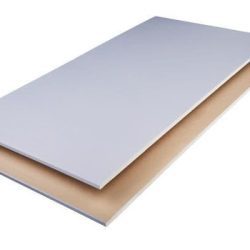The Importance of Acoustic Wall Insulation

Acoustic wall insulation plays a crucial role in creating a comfortable and peaceful living or working environment. By reducing noise transfer between rooms and from outside, acoustic insulation can significantly improve your quality of life and enhance your overall well-being.
What is Acoustic Wall Insulation?
Acoustic wall insulation is specifically designed to minimise sound transmission through walls. It typically consists of materials with high sound absorption properties, such as mineral wool, acoustic insulation rolls, or acoustic plasterboard. These materials work by absorbing sound waves and converting them into a small amount of heat energy, preventing them from passing through the wall and disturbing the peace on the other side.
The Benefits of Acoustic Wall Insulation
Investing in acoustic insulation offers numerous advantages:
- Reduced Noise Pollution: Whether it’s noisy neighbours, traffic sounds, or the hustle and bustle of a busy street, acoustic wall insulation can significantly reduce unwanted noise, creating a more tranquil and relaxing atmosphere in your home or workplace.
- Improved Sound Quality: Acoustic insulation can also enhance the sound quality within a room by reducing reverberation and echo. This makes it ideal for spaces such as home theatres, music rooms, or recording studios.
- Increased Privacy: By minimising sound transfer between rooms, acoustic wall insulation provides greater privacy and allows for undisturbed conversations, relaxation, or concentration.
- Enhanced Comfort: A quieter environment can contribute to improved sleep quality, reduced stress levels, and increased overall comfort.
- Thermal Insulation Benefits: Many acoustic insulation materials also offer excellent thermal insulation properties, helping to reduce heat loss in the winter and keep your home cooler in the summer. This can lead to lower energy bills and a reduced carbon footprint.
Where to Use Acoustic Wall Insulation
Acoustic wall insulation can be used in various settings to improve soundproofing:
- Homes: Reduce noise transfer between bedrooms, living rooms, and home offices.
- Apartments and Flats: Minimise noise from neighbours and common areas.
- Commercial Buildings: Create quieter workspaces, meeting rooms, and private offices.
- Schools and Hospitals: Improve the acoustic environment for better learning and patient care.
Types of Acoustic Wall Insulation
There are several types of acoustic wall insulation available, each with its own advantages and applications:
- Acoustic Mineral Wool: Highly effective at absorbing sound waves, this versatile material is available in rolls or batts and can be easily installed in walls, floors, and ceilings.
- Acoustic Insulation Rolls: These rolls are specifically designed for wall applications and offer excellent sound absorption and thermal performance.
- Sound Resistant Plasterboard: This type of plasterboard is denser than standard plasterboard and is designed to reduce sound transmission.
- Soundproofing Membranes: These thin membranes can be used in conjunction with other acoustic insulation materials to further enhance soundproofing.
Choosing the Right Acoustic Insulation
Selecting the best acoustic insulation for your project depends on several factors:
- Type of Noise: Identify the type of noise you want to reduce (e.g., airborne noise, impact noise).
- Wall Construction: Consider the existing wall construction (e.g., solid wall, cavity wall, stud wall).
- Budget: Acoustic insulation materials are available at various price points.
- Desired Level of Soundproofing: Determine the level of sound reduction you want to achieve.
Installation of Acoustic Wall Insulation
Proper installation is crucial for the effectiveness of acoustic insulation. It is recommended to hire a qualified and experienced installer to ensure the insulation is installed correctly and to the required standards.
Combine with Other Soundproofing Measures
For optimal soundproofing, wall insulation can be combined with other measures, such as:
- Soundproofing Doors and Windows: Upgrade to doors and windows with better sound insulation properties.
- Acoustic Sealant: Seal any gaps or cracks around windows and doors to prevent sound leakage.
- Resilient Bars: Use resilient bars to decouple plasterboard from the wall studs, reducing the transmission of impact noise.
Need Help with Acoustic Wall Insulation?
At Online Insulation, we offer a wide range of acoustic insulation products at competitive prices. Our expert team can provide guidance and support to help you choose the best solution for your needs and budget.
Browse our selection of acoustic insulation materials online or contact us today for expert advice.


























